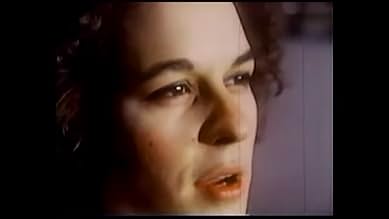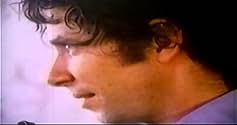A communal drug family begins to dissolve from within while a University student watches and records it all.A communal drug family begins to dissolve from within while a University student watches and records it all.A communal drug family begins to dissolve from within while a University student watches and records it all.
- Awards
- 2 nominations
Lily Glidden
- The Family
- (as Lilly Glidden)
- Director
- Writers
- All cast & crew
- Production, box office & more at IMDbPro
Storyline
Did you know
- ConnectionsFeatured in Dusk to Dawn Drive-in Trash-o-Rama Show Vol. 5 (1998)
- SoundtracksLewis is Crazy
By Lewis Furey
Featured review
In a book store, smooth-talking hard drug dealer/user Steve (painter Stephen Lack) meets Allan (Allan Moyle) - a young sociology student at McGill. They become fast friends and Allan is invited to Steve's studio apartment on Montreal main to meet his commune/drug network.
Allan decides he wants to do a paper with the controversial position that drug use has positive effects using Steve's 'family' as a case study. Life with Steve & the gang isn't quite as rosy as it might appear to Allan at first but it isn't quite as sleazy as it might appear to others either.
Pierre (Pierre Robert), a bisexual, heroin addict/male prostitute with a wife and small daughter looks to displace Steve as the leader of the group when, compelled by his addiction he concocts a plan to steal drugs from a storage locker at the train station. Steve, having nearly followed through on the same plan, is certain it is a trap. Being indiscreetly watched and recorded by corrupt narcotics cops the tension rises.
Since so very few films were being made in Canada at the time it was nevertheless lauded for the aspects which could be praised. The premise is strong and the framing device of the sociology paper is a good one. But the amateur performers and lack of production resources yielded an unsatisfactory finished product. Heavily improvised what is shown works considerably less often than it does.
The controversy to be found in this film goes beyond the fact that a toddler is being raised amongst a group of hard core stoners. Steve and another gay dude are also to be seen gleefully checking out young boys playing hockey in a parkette leaving little doubt as to why they are looking or more specifically what they are looking at. They take one of the most innocent things in Canadian life and turn it into something tawdry.
Persuading prudish elements in Canada of the merits of this film remains difficult. When a country views reflections of itself via its parochial cinema what it sees is sometimes unflattering or at very least not reflective of mainstream interpretation.
As this title was created with Arts Council and Film Board assistance it is worth noting that Canadian taxpayers partially footed the bill for it. Moyle's directing career and that of score composer Lewis Furey flourished as a result and their taxes more than replenished what it cost.
The critical acclaim of the Rubber Gun led to Moyle's directing career and he went on to direct such Hollywood films as Times Square (1980), Pump Up the Volume (1990) and Canadian films The New Waterford Girl (1999) and Weirdsville (2007).
Allan decides he wants to do a paper with the controversial position that drug use has positive effects using Steve's 'family' as a case study. Life with Steve & the gang isn't quite as rosy as it might appear to Allan at first but it isn't quite as sleazy as it might appear to others either.
Pierre (Pierre Robert), a bisexual, heroin addict/male prostitute with a wife and small daughter looks to displace Steve as the leader of the group when, compelled by his addiction he concocts a plan to steal drugs from a storage locker at the train station. Steve, having nearly followed through on the same plan, is certain it is a trap. Being indiscreetly watched and recorded by corrupt narcotics cops the tension rises.
Since so very few films were being made in Canada at the time it was nevertheless lauded for the aspects which could be praised. The premise is strong and the framing device of the sociology paper is a good one. But the amateur performers and lack of production resources yielded an unsatisfactory finished product. Heavily improvised what is shown works considerably less often than it does.
The controversy to be found in this film goes beyond the fact that a toddler is being raised amongst a group of hard core stoners. Steve and another gay dude are also to be seen gleefully checking out young boys playing hockey in a parkette leaving little doubt as to why they are looking or more specifically what they are looking at. They take one of the most innocent things in Canadian life and turn it into something tawdry.
Persuading prudish elements in Canada of the merits of this film remains difficult. When a country views reflections of itself via its parochial cinema what it sees is sometimes unflattering or at very least not reflective of mainstream interpretation.
As this title was created with Arts Council and Film Board assistance it is worth noting that Canadian taxpayers partially footed the bill for it. Moyle's directing career and that of score composer Lewis Furey flourished as a result and their taxes more than replenished what it cost.
The critical acclaim of the Rubber Gun led to Moyle's directing career and he went on to direct such Hollywood films as Times Square (1980), Pump Up the Volume (1990) and Canadian films The New Waterford Girl (1999) and Weirdsville (2007).
- JasonDanielBaker
- Mar 6, 2014
- Permalink
Details
Box office
- Budget
- CA$90,000 (estimated)
Contribute to this page
Suggest an edit or add missing content




















